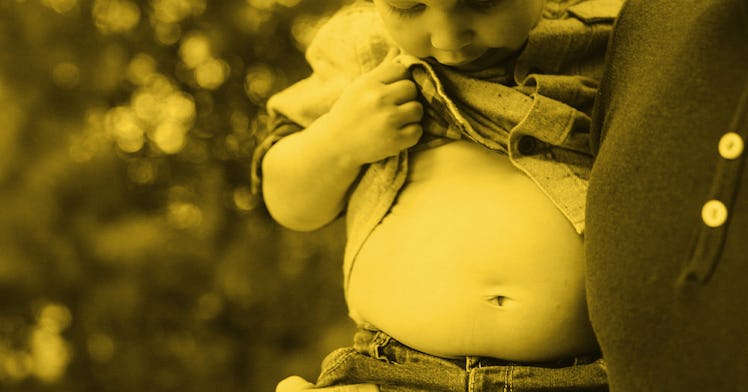The Link Between Gut Bacteria And Your Kid’s Behavior Just Got Stronger
A new study finds your kid might be acting up because their gut isn't genetically diverse enough. Time to bust out the fiber?

Ohio State University researchers have found that gut bacteria can affect a toddler’s temperament. After examining the stool samples of 77 kids aged 18-27 months, the researchers concluded that it was time to step outside and get some fresh air. They also concluded that mood, curiosity, sociability, impulsivity, and — in boys — extroversion were linked to more genetically diverse bacterial species.
Gut bacteria, also known as a microbiome, is having a moment lately — and for good reason. Microorganisms swimming around your pipes not only digest food and fight disease, but they also secrete mood-regulating chemicals like serotonin, dopamine, and gamma-aminobutyric acid or GABA. There is a growing connection, in other words, between a diverse microbiome and health, stability, and even athletic prowess.
“There is definitely communication between bacteria in the gut and the brain, but we don’t know which one starts the conversation,” says the OSU study‘s co-author Dr. Michael Bailey. “Maybe kids who are more outgoing have fewer stress hormones impacting their gut than shy kids. Or maybe the bacteria are helping mitigate the production of stress hormones when the child encounters something new. It could be a combination of both.”
Abnormalities in gut bacteria, on the other hand have been linked to anxiety, depression, and even autism and hyperactivity. Research like that from OSU is focused on how the mood-regulating chemicals get from the gut to the brain, and how that process might be involved in chronic disease. For this reason, there’s an uptick in pro-dirt play as well as a growing anti-antibiotics movement.
Another implication of this research: What if gut bacteria were linked to your toddler’s mood? What if it turned out there was a dietary cure for wild toddlers? “It is possible that effects of diet would emerge if we used a more detailed assessment,” says Bailey’s co-author, Dr. Lisa Christian. “It is certainly possible that the types or quantities of food that children with different temperaments choose to eat affect their microbiome.”
Given the glacial pace of this kind of research, don’t expect to calm a meltdown over lost Legos with a squeeze pouch of carefully calibrated gut bacteria anytime soon. In the meantime, root for the next-best thing: fecal transplants. If you’re lucky, maybe it will come from some big athlete.